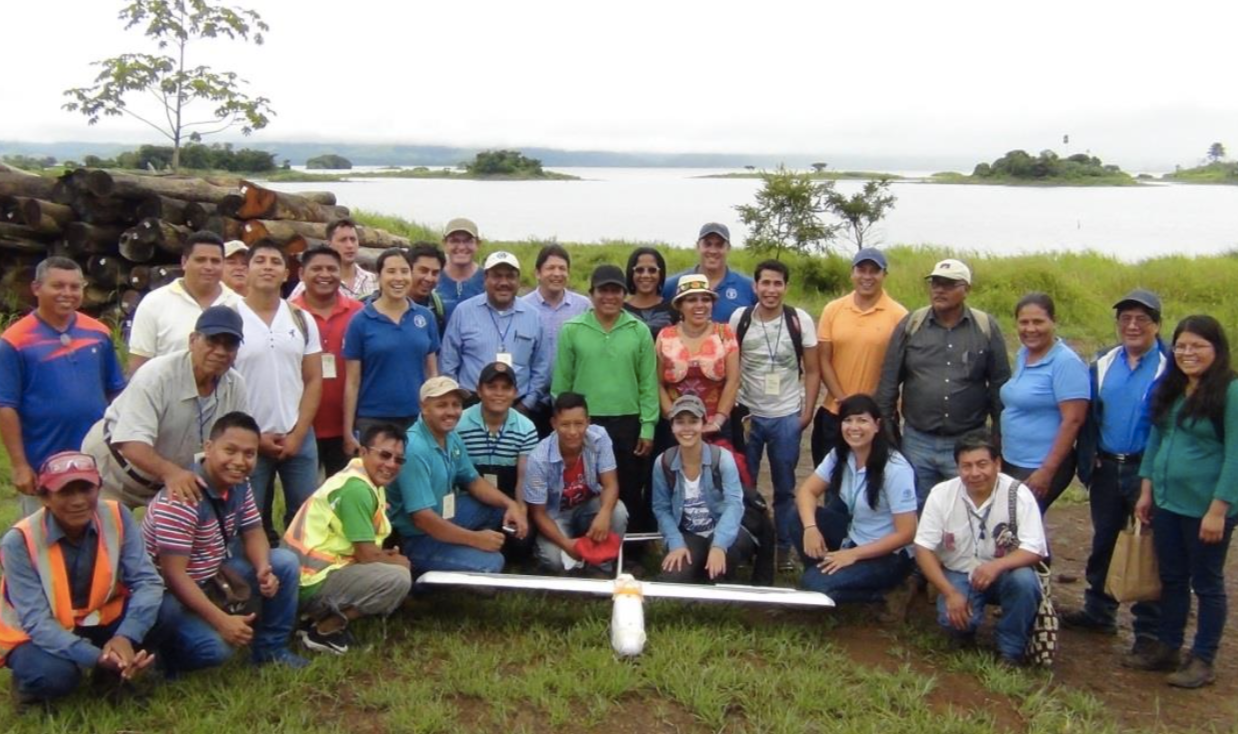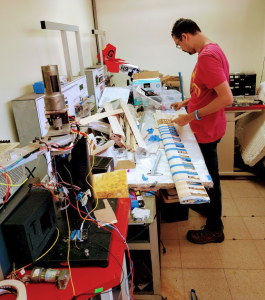
IADB Awards 3-Year Grant for New Flying Labs
January 30th, 2018

We're very excited to announce that the Inter-American Development Bank (IADB) has just awarded a 3-year grant to co-create and scale Panama Flying Labs! Our latest Flying Labs will be led by the Universidad Tecnológica de Panamá which is where the Flying Labs team will be based. Our role will be to support them to become a part of our growing Flying Labs network. Panama Flying Labs will also collaborate closely with Panama's City of Knowledge,a technology park that has expanded to include cutting edge research institutes, international universities, regional headquarters for virtually all United Nations agencies, offices for multiple large NGOs, and most recently a startup incubator.

Given that Panama is the Regional Hub of the United Nations, we expect exciting opportunities to flourish with multiple UN agencies and other international organizations in the region. To be sure, the Food and Agricultural Organization (FAO) in Panama is already working with indigenous peoples to support community-based forest monitoring using drones (pictured right). This explains we're already in touch with FAO to explore a range of opportunities in Panama.
We had the opportunity to carry out a scoping mission in Panama last year and identified multiple needs for emerging robotics applications. Start with the canal zone itself. Roughly 40 miles long, comprising 553 square miles in total, this is one of the largest ecologically protected areas in Central America. The Canal Authority, which is responsible for environmental management of the entire zone, already uses a couple of DJI Phantom drones to do rapid aerial imaging of points of concern. But there is considerable potential to conduct broader aerial mapping and to utilize marine robots for water quality monitoring, both routinely and in the event of hydrologic emergency.
 Water monitoring is an issue throughout Panama and the rest of Central America. The folks at CATHALAC, el Centro del Agua del Tropico Humedo para America Latina y el Caribe, are already working in mapping watersheds watershed mapping and are far along in this field, conducting trainings in drone mapping and remote sensing, and utilizing high resolution imagery to detect risks and change in environmentally sensitive areas. There is an opportunity here for Panama Flying Labs to help expand and deepen this work, connecting it up with disaster management, and linking it to the broader field of marine robotics should become a priority.
Water monitoring is an issue throughout Panama and the rest of Central America. The folks at CATHALAC, el Centro del Agua del Tropico Humedo para America Latina y el Caribe, are already working in mapping watersheds watershed mapping and are far along in this field, conducting trainings in drone mapping and remote sensing, and utilizing high resolution imagery to detect risks and change in environmentally sensitive areas. There is an opportunity here for Panama Flying Labs to help expand and deepen this work, connecting it up with disaster management, and linking it to the broader field of marine robotics should become a priority.
We also had the opportunity to meet with ANCON, el Association National Para La Conservacion de la Naturaleza, and IICA, el Instituto Interamericano de Cooperación para la Agricultura during our scoping mission. We discussed the use of drones to map wildlife conservation, monitor protected areas, and to support sustainable agriculture. Roughly 40% of Panama consists of protected areas. Organizations like CATHALAC and ANCON, along with el Ministerio de Ambiente (Ministry of Environment), are working hard to monitor this vast and remote area more effectively. These important stakeholders expressed an interest in training park rangers to become drone operators for remote area surveillance. Others want to carefully map the boundary between forests and expanding areas of agricultural land. Expanding drone mapping capacity generally throughout Panama’s environmental and agriculture sectors can be a crucial piece of this complex puzzle. 
The Universidad Tecnológica de Panama plays a central role in these emerging partnerships. Faculty and students are right now building their own drones, developing prototype robotic systems and are working on the early stages of a fab lab for hyperlocal manufacturing in a new center being built on the campus. These talented students need connections, entrepreneurial training and exciting new projects. Interest is strong here in linking local engineering talent with the social good sectors to benefit the educational experience of Panamanian students, improve their job prospects, and thread the university’s capacities into the formation of local and regional technological capital.
Jobs and capital formation are key priorities for both WeRobotics and the Inter-American Development Bank. Panama is in many ways uniquely positioned to play a leading role as a regional innovation center. Cultivating innovation rooted in local economies and the specific social needs of the surrounding area is at the cutting edge of new development strategies tailored towards inclusive growth and democratization of emerging information industries like robotics. The launch of Panama Flying Labs is part of that strategy, including the creation of new startup businesses and the integration of startup business into the growing social sectors from environment, agriculture and water to disaster resilience and community health.
We're thrilled to partner with the Technical University of Panama (TUP) and IADB to bring our Flying Labs framework and expertise to the country and region. Panama Flying Labs joins our growing network of Flying Labs in Peru, Nepal, Tanzania and the South Pacific. Stay tuned for updates on the trainings and projects being planned by Panama Flying Labs. In the meantime, huge thanks to IADB and TUP for sharing our vision and enabling this new Flying Labs!
Recent Articles

